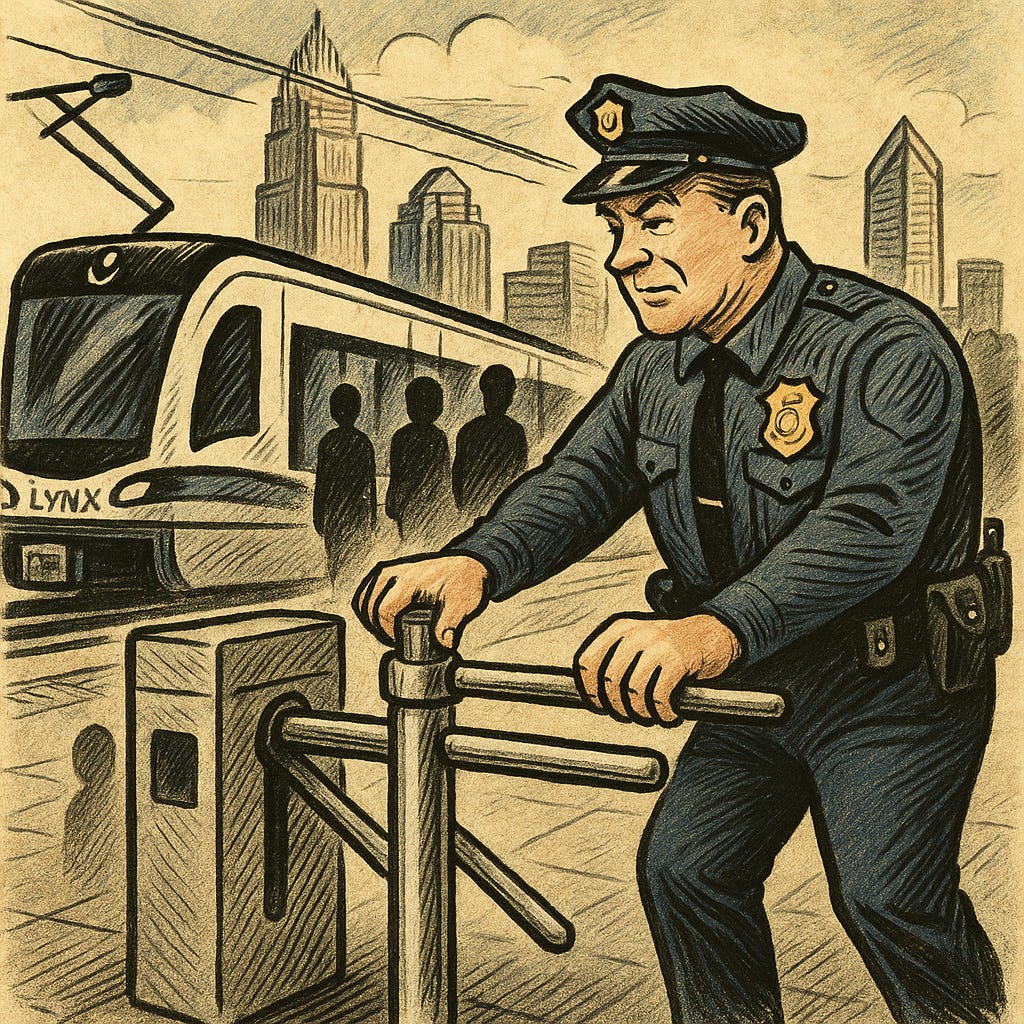What Iryna's Law should do
With the legislature back in town, here are five fixes that would make North Carolina safer
The General Assembly is back in Raleigh today, and one of the first orders of business is a legislative response to the horrific killing of Iryna Zarutska on the Charlotte light rail line.
House Speaker Destin Hall says “Iryna’s Law” will be filed this week1 to keep violent criminals off the streets and behind bars. I’m glad they’re moving. A few weeks ago, I said the time would come to talk about fixes. That time is now.
We aren’t guessing at the failures anymore. The man charged in Iryna’s killing had 14 arrests, and served only five years for an armed robbery conviction. His mother says she begged for long-term care to keep him off the streets and hit a wall.
All that doesn’t point to a single bad decision, it points to a broken system. One that:
Releases people who pose an obvious danger
Moves too slowly on the worst cases
Treats violent crime too lightly
Lacks real long-term options for the criminally insane.
Here’s the framework I believe Iryna’s Law should follow. I am not well-versed in the ins and outs of North Carolina criminal law, so I’ll keep this high-level. The specifics can and should be hashed out.
1) Stop the turnstile releases
Jail shouldn’t be a quick in-and-out when the total picture shows a significant risk. We need a pretrial process that slows down long enough to take in someone’s violent history and obvious mental-health red flags, and then acts accordingly.
That means a higher bar to walk out on serious violent charges, at a minimum, and some real judicial review when a person with a violent case history picks up another charge.
You can see why this matters in Charlotte: Months before the murder, the suspect was released on a written promise in a 911-misuse case. In isolation, that charge looked minor; in context, it doesn’t.
It’s critical beyond this case, as well. Charlotte’s South End just saw a man beaten on the Rail Trail — then the suspect, who had prior assault arrests, cycled back out almost immediately.
People see the threat, then see the turnstile spin. “Iryna’s Law” should reset that culture.
2) Treat violent crime like it is — and review sentencing
Armed robbery is terror, and five years behind bars doesn’t reflect that. If we’re serious, we’ll revisit North Carolina’s sentencing guidelines for violent offenses so punishment fits the crime and repeat violent convictions bring certain, consecutive time.
The point should be simple: When you menace people with violence in this state, you will serve real time.
3) Make justice more swift
Mecklenburg County’s adult felony conviction rate is near the bottom of the state, and DA Spencer Merriweather says his office doesn’t have the resources it needs to improve it.
Iryna’s Law should say, clearly, that North Carolina will never again be able to claim we lack the resources to prosecute violent crime. Add assistant district attorneys where the load actually is — Charlotte included — and tie those positions to specific benchmarks, like:
Average length of time before trial
Share of violent cases prosecuted to meaningful outcomes
Fewer giveaway pleas on violent counts
If an office consistently misses the marks, reassign the added slots to one that can meet them. That’s how you fund capacity without bloating payrolls.
4) Build real long-term treatment for the criminally insane
We can protect the public and honor due process at the same time. People who clearly pose a danger to themselves or others shouldn’t be on the street.
Give judges and magistrates clear authority to start involuntary commitment when danger is obvious, and move those cases into secure treatment—not back to the sidewalk.
If a defendant in a violent case is found incompetent, stop the clock and transfer them to a secure hospital bed immediately. Then fund enough forensic beds and staff to make that more than a promise.
For those who are criminally insane or remain dangerous, provide long-term secure care with a single, statewide review of any step-down or release tied to violent offenses.
That isn’t cruelty. It’s care with guardrails, protecting the public while treating illness honestly.
5) Make transit safer, and enforce fares like we mean it
Safety on a train comes from presence and order. If the Mecklenburg transit tax passes, a fixed share of the new revenue should be dedicated to visible safety: uniformed officers on trains and platforms, cameras and lighting that work, and live monitoring.
And fare enforcement has to be real. When “everybody rides free” becomes the culture, rules stop mattering and the most vulnerable riders pay the price. Iryna did what we ask people to do — she took the train home. The system has to make that safe again.
Let’s make it bipartisan, too
I’ve been encouraged to see some Democrats take this seriously, especially Rep. Laura Budd and House Democratic Leader Robert Reives. Republicans should give them a real seat at the table.
Iryna deserved a city and a state that would keep her safe. “Iryna’s Law” should make that promise true for the next young woman riding home.
At a premium
Important reads
If you’re going to remember Iryna Zarutska, her family hopes it’s more like this (Charlotte Observer gift link)
NC lawmakers spar over Medicaid, children's hospital funding as budget impasse drags on (WRAL)
Top spenders on social media last week
Question of the week
Two weeks ago, I asked you if you wanted State Auditor Dave Boliek to run for governor in 2028. A near majority (47%) said no, we need him in the auditor’s office. 29% said yes, he should run; while 24% said he shouldn’t run because Gov. Josh Stein is not beatable.
Update: Last night, the House released a draft of the initial version of Iryna’s Law. It tracks much of the framework I’ve laid out — especially more prosecutors in Charlotte and tighter pretrial release conditions. I’m grateful for the quick action. However, I’d still like the pretrial piece to go farther, particularly for people with multiple violent priors.



